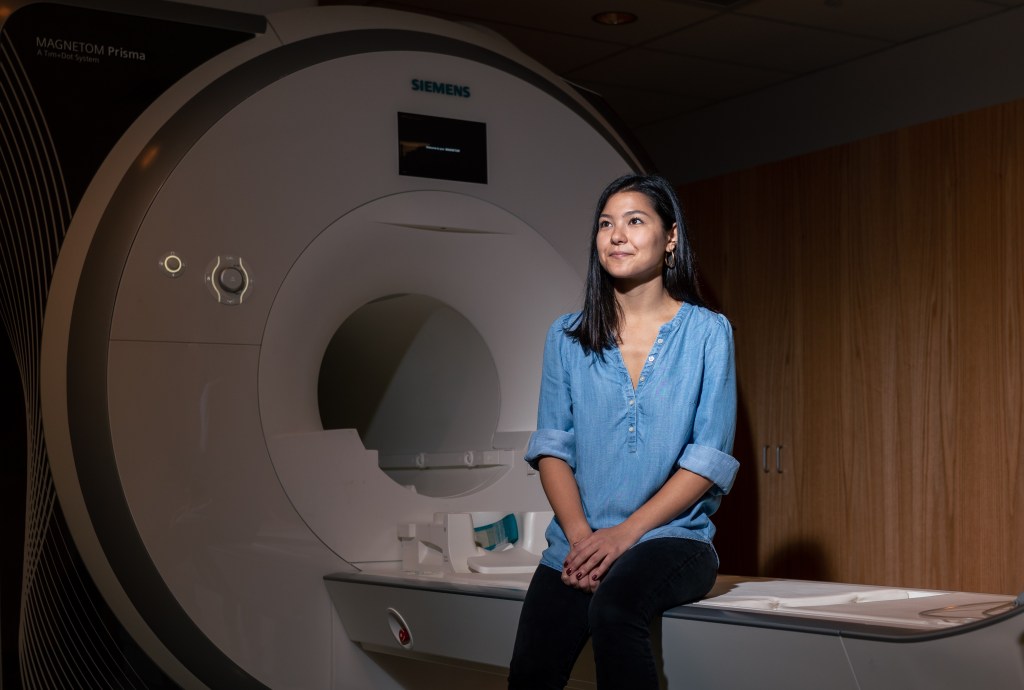I am a neuroscientist whose expertise is mapping the dynamic interplay between hormones and the brain. In the course of my PhD training I have read hundreds of empirical papers, taken graduate-level classes, and collaborated with experts in neuroscience and endocrinology. I work in a research lab entirely dedicated to advancing women’s brain health. I am literally steeped in a world that pays careful attention to women’s bodies.
And yet, it took years to figure out what was happening with my hormones, my brain, and my body to confirm that I have the most common endocrine disorder: polycystic ovary syndrome. PCOS is characterized by ovarian cysts, irregular periods, and elevated levels of androgen hormones, such as testosterone. The typical diagnostic timeline for PCOS — the time between when symptoms begin and an accurate diagnosis is achieved — is two to five years. Five years? People earn a PhD in that timeframe.
Why is it that it can take up to half a decade to diagnose a disorder that impacts one in 10 women? As Elinor Cleghorn writes in her book Unwell Women, “our diseases are not elusive to us … but something about them seems to thwart and frustrate medicine at every turn … and the lives of unwell women depend on medicine learning to listen.”
When I was in middle school, my menstrual cycle irregularities were brushed off as exercise related and I was prescribed birth control as a patch fix. I went off of birth control for the first time when I started graduate school, and I didn’t get a period for over six months. My endocrine panels also showed testosterone levels that were significantly higher than the reference range. I knew these were indications of PCOS, but confirming a diagnosis required an ultrasound. This time, my concerns were dismissed as stress related. I insisted that something felt wrong and pushed for an ultrasound. The procedure confirmed that my concerns were real. I have PCOS, a chronic condition that has no known cause, no cure, and is the leading cause of infertility in women. When I brought up worries about infertility, I was told “we’ll cross that bridge when you get there.” After years of uncertainty, I finally found a clinician who believed me, wanted to help me, and educated me about a dietary supplement that has since stabilized my condition. Why did it take so long to get here?
Why did my institution of more than 20,000 students — 44 percent of whom are women — have only one practicing OBGYN at the time? Why can it take five years to receive a diagnosis for a disorder that impacts 10 percent of women? I can’t help but wonder how much sooner I could have known about my diagnosis and been able to address it if birth control wasn’t handed out as a patch fix, or if women’s voices were taken seriously. Why is the medical system so unprepared to answer questions about women’s health?
Ignorance is baked into the system. For example, a survey of medical schools found that 80 percent fail to offer curricula on menopause, which half of the population experiences. If it’s offered at all, women’s health is typically defaulted to an elective. Failures such as these in our health-care system are likely related to the historical dearth of female leadership in biomedical sciences and health care.
While I suffered the mental agony of not understanding what was happening with my body, other women endure this uncertainty on top of intense physical pain. And it’s not just PCOS. It’s endometriosis, a condition where endometrial tissue grows outside the uterus, causing chronic pelvic pain. Like PCOS, endometriosis impacts one in 10 women and takes more than seven years on average to diagnose. It’s pregnancy: Even after anesthesia was created in the mid 19th century, for years women were expected to do their so-called duty and suffer through childbirth without it. It’s birth control: In many clinics it’s assumed that women will experience the agonizing pain of IUD insertion without any sort of pain relief. For far too long women’s bodies and women’s pain have not been taken seriously.
The irony of my situation is not lost on me: I am a female PhD student in neuroendocrinology working in a lab that shines a spotlight on women’s bodies, but I still fell victim to medicine’s ignorance. The worst part of my story is that it’s not a unique one. It’s a broader echo of medicine’s failure to listen to women. In response to this, my goal is to find solutions both empirically and policy-wise so that other women do not have to experience what I did.
In my role as a neuroscientist in the Jacobs Lab at UC Santa Barbara, I am leading a study to examine how PCOS and endometriosis influence the brain. Understanding the neural impact of these extremely common yet understudied reproductive disorders is one step forward for women’s health. I hope that discussing women’s heath within our community can be a first step toward influencing the next generation of young women to be advocates for themselves as they come to understand their changing bodies.
By incorporating topics like reproductive endocrine disorders, pregnancy, and menopause into the broader dialogue and into required curriculum — from elementary school health classes through medical school — we have the opportunity to transform medicine so that it can finally serve women. Our lives depend on it.

